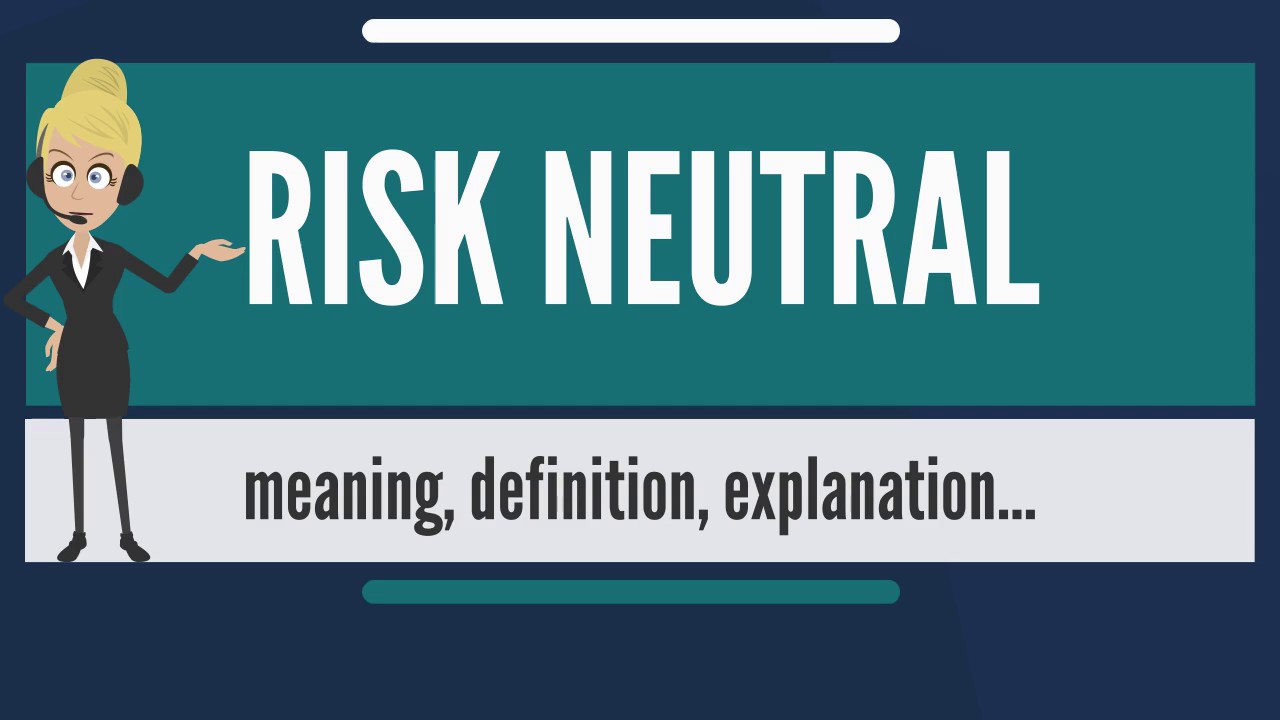What is Risk Neutral? Definition and Meaning

It’s all about risk to invest in any market. No investment is 100% safe or guaranteed inherently. Therefore, especially in investment, the axiom “the greater the risk, the greater the reward” holds true. Not everyone wants to take risks with their money. As a result, financial professionals classify investors into categories based on the investor’s risk appetite: risk averse, risk neutral, and risk seeking.
Risk Seeker
A risk seeker person is that who will just think of a great profit no matter if his investment gets zero. That person will only consider the profit even if he will lose all the money.
Risk Averse
An investor who chooses lower returns with known risks rather than higher returns with unknown risks is a risk-averse investor. In other words, this investor often chooses the alternative with less value among different investments offering the same return with different levels of risk.
Risks are avoided by a risk-averse investor. He/she stays away from high-risk investments and prefers investments that deliver a certain return. Such investors like to invest in public bonds, debentures, and index funds.
Risk Neutral

Risk neutral is a concept that is used both in studies of game theory and in finance. This refers to an attitude where, when making an investment decision, a person is indifferent to risk. This behavior is not based on analysis or logical inference, but on an emotional preference. A person with a risk-neutral approach just doesn’t focus on the risk and regardless of whether or not it’s a wrong thing to do. This behavior is often situational and may rely on cost or other external factors.
Basically, when any investor ignores the risk factor in any business and just invests without concerning any loss, this is termed as Risk Neutral.
Generally it is accepted in the economic theory that most of the people are not having the risk neutral nature. You will find these types of people rarely. People tend to prefer safer choices over riskier options, which mean they are risk-averse.
It will take a long time for individuals who are risk-neutral to carefully weigh up investment options rather than making a quick decision to either avoid or accept risk. Most of us focus almost entirely on the factor of risk.
Risk-neutral investors are much less common than their risk-averse and risk-seeking counterparts. Most of us are averse to risk and find the notion of risk neutrality rather odd.
Purchasing any product
Risk neutral person purchasing and risk averse person purchasing will be different. For example if two person visited an online store of jackets for Black Leather Jackets. If any store is offering 25% off on all items whereas other in-store items have no sale or fewer discounts. The risk neutral person would opt for the online sale because he will just think about the amount of discount whereas risk averse person would think a lot before purchasing that what if they receive the defected product, what if the product is not same as ordered etc.
Car Selling Business
For example, if someone starts a business. He definitely thinks about the profit and loss. Let’s say you are a car investor and you have to buy a car. You will buy any car by looking at that how much profit you can get if you sell it to another party. On the other hand, you also try to minimize the risk factors that would prevent the car for selling in a profitable amount, sell it in a reduced amount, or even not selling at all. In your mind there would be a complete plan about the dark side and you will invest your money by considering the risk margins. But this is not the case of a person with risk neutral mind. He will just invest and thinks about the profit.
Money Investment
Consider another example in which in front of three types of persons (one is Risk averse, one is Risk neutral, and one is risk seeker) you offer three investment options:
- Invest $1000 with 100% certainty that it will increase to $1100 in a year
- Invest $500 with 50% certainty for both that it would increase to $600 and may decrease to $400
- Invest $1000 with 50% certainty that you will get $2000 instantly or you will get nothing $0
The risk averse person would choose the option having 100% certainty whereas risk neutral person will not mind to select any of the options from first two because to him both are offering same amount of profit of $100(if loss is ignored). But risk seeker will choose the third option.
Conclusion
Whether you are a risk averse person or risk neutral person, both are not a suitable behavior. A person should maintain a balance in the behavior and should identify the behavior according to the situation. In some situations risk averse behavior is good and sometimes risk neutral behavior is beneficial.



